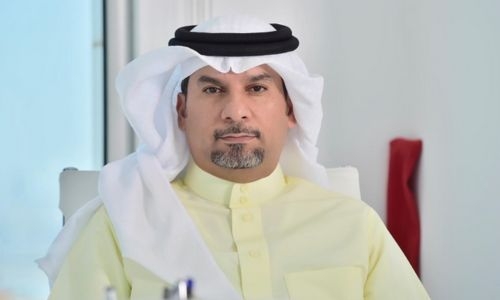The importance of investing in new opportunities in the energy sector was highlighted by the Minister of Oil and Environment of Bahrain, Dr. Mohammed bin Mubarak Bin Daina, during a recent business networking luncheon. As the world grapples with the pressing issue of the energy crisis and the need for alternative energy sources to combat climate change, Dr. Bin Daina emphasized the need for a balanced approach to address the energy shortage effectively. He acknowledged the potential role of hydrogen as an alternative energy source but expressed concerns about its high cost.
Dr. Bin Daina pointed out the long-standing relationship between Bahrain and the United States, extending beyond military bases to include the Free Trade Agreement with a significant focus on environmental concerns. He highlighted recent climate-related incidents at Bahrain Petroleum Company, attributing them to the effects of climate change. The incidents, caused by unprecedented heavy rainfall reaching 90mm, underscored the undeniable impact of climate change on the region.
Examining the global energy consumption and the challenges faced by developing nations due to limited financing options, Dr. Bin Daina expressed his genuine concern about the heavy reliance on certain energy sources. He warned that such reliance could lead to an energy shortage that cannot be easily replaced, exacerbating the energy crisis. Despite Bahrain’s commitment to combat climate change and achieve carbon neutrality by 2060, Dr. Bin Daina raised valid concerns about the effectiveness of current initiatives in reducing emissions and increasing the mangrove size.
In addressing the energy security challenge, Dr. Bin Daina stressed the importance of diversifying energy sources by combining renewables and hydrogen. He highlighted the need for multiple energy sources to effectively address the energy shortage and mitigate the impact of climate change. The collaboration between Bahrain and the United States in environmental concerns, as well as the focus on finding sustainable solutions for the energy sector, is crucial in ensuring a sustainable future for both countries.
The potential of hydrogen as an alternative energy source is acknowledged by Dr. Bin Daina, but concerns about its cost remain. A balanced approach that incorporates multiple energy sources, including renewables and hydrogen, is essential in ensuring a reliable and sustainable energy supply. By investing in new opportunities and promoting renewable energy technologies, Bahrain and other nations can work towards a more sustainable future and combat the challenges posed by climate change and the energy crisis.
In conclusion, the urgent need to address the energy crisis and combat climate change requires a multi-faceted approach that includes investing in new opportunities within the energy sector. By diversifying energy sources, promoting renewable technologies, and collaborating with other nations, Bahrain can work towards achieving its goal of carbon neutrality by 2060. Dr. Bin Daina’s emphasis on the importance of finding alternative energy sources, such as hydrogen, highlights the need for innovative solutions to meet the growing energy demands while reducing the impact of climate change on the region.


























